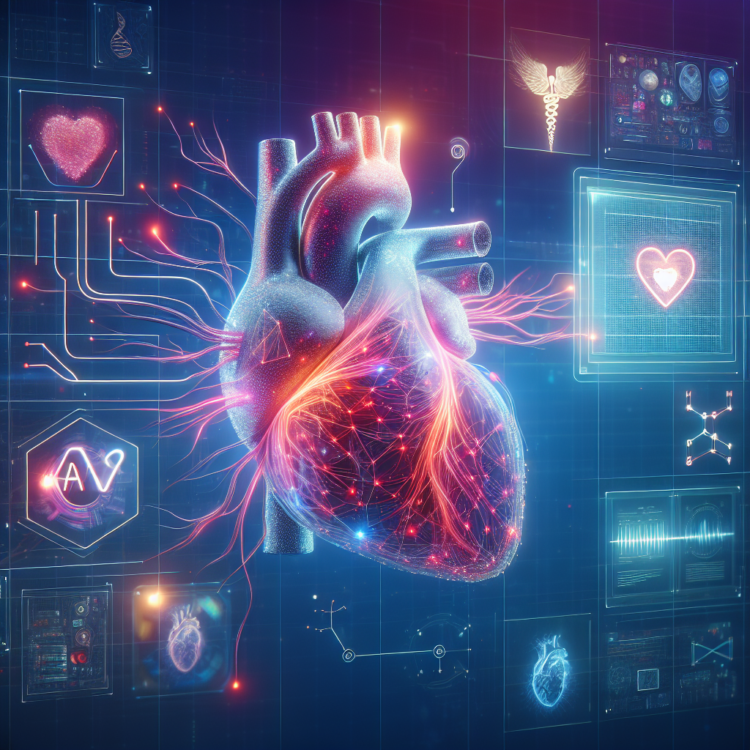UVA Health researchers have developed a powerful new risk assessment tool for predicting outcomes in heart failure patients. The researchers have made the tool publicly available for free to clinicians.
UVA Health researchers have developed a powerful new risk assessment tool for predicting outcomes in heart failure patients. The researchers have made the tool publicly available for free to clinicians.
The new tool improves on existing risk assessment tools for heart failure by harnessing the power of machine learning (ML) and artificial intelligence (AI) to determine patient-specific risks of developing unfavorable outcomes with heart failure.
“Heart failure is a progressive condition that affects not only quality of life but quantity as well. All heart failure patients are not the same. Each patient is on a spectrum along the continuum of risk of suffering adverse outcomes,” said researcher Sula Mazimba, MD, a heart failure expert. “Identifying the degree of risk for each patient promises to help clinicians tailor therapies to improve outcomes.”
About Heart Failure
Heart failure occurs when the heart is unable to pump enough blood for the body’s needs. This can lead to fatigue, weakness, swollen legs and feet and, ultimately, death. Heart failure is a progressive condition, so it is extremely important for clinicians to be able to identify patients at risk of adverse outcomes.
Further, heart failure is a growing problem. More than 6 million Americans already have heart failure, and that number is expected to increase to more than 8 million by 2030. The UVA researchers developed their new model, called CARNA, to improve care for these patients. (Finding new ways to improve care for patients across Virginia and beyond is a key component of UVA Health’s first-ever 10-year strategic plan.)
The researchers developed their model using anonymized data drawn from thousands of patients enrolled in heart failure clinical trials previously funded by the National Institutes of Health’s National Heart, Lung and Blood Institute. Putting the model to the test, they found it outperformed existing predictors for determining how a broad spectrum of patients would fare in areas such as the need for heart surgery or transplant, the risk of rehospitalization and the risk of death.
The researchers attribute the model’s success to the use of ML/AI and the inclusion of “hemodynamic” clinical data, which describe how blood circulates through the heart, lungs and the rest of the body.
“This model presents a breakthrough because it ingests complex sets of data and can make decisions even among missing and conflicting factors,” said researcher Josephine Lamp, of the University of Virginia School of Engineering’s Department of Computer Science. “It is really exciting because the model intelligently presents and summarizes risk factors reducing decision burden so clinicians can quickly make treatment decisions.”
By using the model, doctors will be better equipped to personalize care to individual patients, helping them live longer, healthier lives, the researchers hope.
“The collaborative research environment at the University of Virginia made this work possible by bringing together experts in heart failure, computer science, data science and statistics,” said researcher Kenneth Bilchick, MD, a cardiologist at UVA Health. “Multidisciplinary biomedical research that integrates talented computer scientists like Josephine Lamp with experts in clinical medicine will be critical to helping our patients benefit from AI in the coming years and decades.”
Findings Published
The researchers have made their new tool available online for free at https://github.com/jozieLamp/CARNA.
In addition, they have published the results of their evaluation of CARNA in the American Heart Journal. The research team consisted of Lamp, Yuxin Wu, Steven Lamp, Prince Afriyie, Nicholas Ashur, Bilchick, Khadijah Breathett, Younghoon Kwon, Song Li, Nishaki Mehta, Edward Rojas Pena, Lu Feng and Mazimba. The researchers have no financial interest in the work.
The project was based on one of the winning submissions to the National Heart, Lung and Blood Institute’s Big Data Analysis Challenge: Creating New Paradigms for Heart Failure Research. The work was supported by the National Science Foundation Graduate Research Fellowship, grant 842490, and NHLBI grants R56HL159216, K01HL142848 and L30HL148881.
To keep up with the latest medical research news from UVA, subscribe to the Making of Medicine blog.




